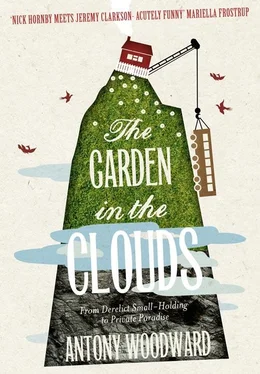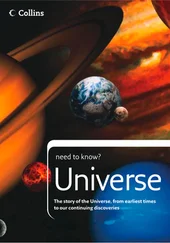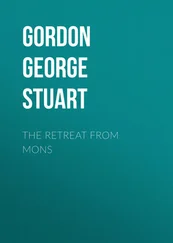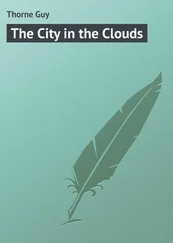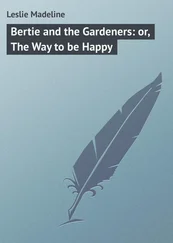‘What if someone comes? What if the people come back?’
‘They won’t come back.’
‘But what if they do?’
‘I must say, I’m not sure this is wise,’ says my father. ‘It’s breaking the law.’
‘Don’t be so feeble, Peter. How could anyone mind? If the child got on with it, we could all be on our way home by now.’
‘Exactly. It’s breaking the—’
‘Be quiet, Antony.’
‘What if someone does come?’ says my father.
‘He just runs for it, of course.’ She turns to me. ‘You can come back through the gate if you want. Look,’ she adopts a more conciliatory tone, ‘it won’t take a second. You’ll be back here before you know it, and I’ll cook sausages for tea.’
‘The fence is too high. I’ll never get over.’
‘It does look high, Liza. I really do think—’ says my father.
‘Fiddlesticks. Really Peter, you’re as bad as the children.’
‘It’s not fair…where’s the bloody thing again?’
‘Don’t use bad language. It’s the helianthemum . Over there under the wall, with the small white flowers. In that raised bed. On the left.’
From the car there is a view through the wrought-iron gate, down a short, flag-stoned path onto the lawn. Diagonally across this is the raised bed, about eighty yards away.
‘The white thing by the big red bush?’
‘Yes. Now get a move on. And remember: pull downwards so a piece of the stalk comes with it.’
It had recently rained and as I push through the shrubbery to the railings, every move brings a shower of water droplets down my neck and arms. Insects hum loudly, and beetles keep dropping onto me. Straddling the crossbar, trying to get my second leg over, one of my belt loops catches on an iron point. For a few seconds I’m helpless, exposed to both the house and anyone passing. Vigorous arm movements from the car indicate that my mother thinks I’m stalling. I wriggle free, drop back down into the laurels, crawling under their cover until I reach the lawn’s edge. Then I sprint. By the raised bed, I grab at the plant, and a few moments later, breathless with adrenaline, I’m back at the gate. The latch is tight, lifting with a clang, the hinges screech deafeningly, but at last I’m back in the safety of the car.
‘Quick, go,’ I pant, pulling the car door shut.
‘Let me see,’ demands my mother.
I thrust the sprig of foliage into her hand.
‘Come on. Go .’
‘This isn’t a helianthemum ,’ says my mother. ‘This is aubrietia . You nincompoop, Ant. You’ve got the wrong plant.’
‘ What?’
‘This is no use at all.’
‘Well, I can’t help it. You should have said.’
‘No use at all,’ repeats my mother. ‘Why on earth would I ask for aubrietia ? Quick—back you go.’
‘ WHAT? ’
‘Come on. We haven’t got all day.’
‘I’m not going back in there.’
‘Of course you are. And this time, use your nous,’ she adds, tapping her temple with her forefinger; ‘it’s an alpine. Come on. Get on with it.’
For the second time, I find myself ejected. ‘Well make sure you switch the engine on…’
‘Yes, yes, yes.’
The angry yell of a man’s voice comes from the direction of the house just as my hand stretches out to the raised bed: ‘Hey! You! What are you doing?’
I don’t look, I just leg it across the lawn to the flagged path to the gate. This is my undoing. Following the rain, as soon as my feet touch the flags, I perform a graceless cartwheel, coming down agonisingly on my left thigh. Picking myself up, I fumble for the gate latch. A clang, a squeal of hinges, and I’m back in the car. ‘Quick. Quick. Someone’s coming. Quick. Go. Go, go, go.’
My mother hasn’t started the engine. I dive behind the front seats as she fiddles unhurriedly with the ignition. As we at last pull away, I emerge to find my mother holding the cutting at arm’s length (she’s longsighted), appraising as she steers with one hand.
‘Please keep your eyes on the road, Liza,’ says my father.
‘That should take alright,’ she says. She starts to wrap the cutting in one of the numerous crumpled paper handkerchiefs that always surround her, the car swerving dangerously as she does so. ‘See darling?’ she says, turning to me. ‘That couldn’t have been easier, could it? All that fuss. You do make such a meal of everything.’
This book is partly about an attempt to make a garden and partly an attempt to resolve my vexed relationship with the whole subject of gardening. The specific impulse was planted about twenty years ago, during a conversation with a friend whose party trick was hypnotising people. ‘We all have a garden in our heads,’ he happened to mention. Asked to close our eyes and imagine ourselves in our favourite garden, most people will find a special place, usually a childhood garden. Real or imaginary, once chosen, it’ll always be the same place we visit, if requested to do so thereafter, again and again. This fact, he said, was indispensable to hypnotists, who need to make their subject feel secure, contented, fulfilled, calm and relaxed—in short, highly susceptible to whatever humiliating routines he had planned for them—in a hurry. ‘Just get them into the garden,’ he finished cheerfully. ‘Then you’ve got ’em.’
‘What if they don’t have a favourite garden?’
‘Everyone has a favourite garden.’
Somehow, this idea stuck in my head. The genius of it was its individuality. The instant he said it, I knew I had just such a place. It was the house where my grandmother lived when I was little: a gabled, Elizabethan Cotswold farmhouse with outbuildings, down a long drive, above a valley of hanging beech woods. The house was built of that honey-coloured limestone that seems to absorb the sunshine then radiate it back so even on grey days it still felt warm. The roof was of mossy stone tiles, the windows mullioned. The south-facing garden side was framed by two trees: a vast and ancient Irish yew and a flowering cherry whose white blossom indicated spring had arrived. A stream ran across the lawn in front of the house, feeding a natural swimming pool hewn out of the rock. Inside the dark interior, there were beams and oak panelling and a smell of wood smoke and beeswax. A trap door under the sitting-room carpet led to the cellar. Even the name was charmed: Rookwoods-on-the-Holy-Brook.
Rookwoods was sold in 1968, when I was five and my brother Jonny was seven. ‘It was far too remote for an old woman in winter,’ my mother would declare matter-of-factly when, later, we demanded to know why. ‘It only took a frost for her to be cut off.’ It was the only criticism of Rookwoods I ever heard. The sense of loss, the mounting resentment, the indignant accusations, they followed gradually. As we grew up, vignettes of our Cotswold idyll would drift back, until, by our teens, mere mention of the name was enough to trigger outraged nostalgia. My brother and I would compete for whose imagination had the greater claim on the place, trumping each other’s memories in an area in which my brother, with a two-and-a-half-year head start, had an irksome advantage.
When Granny died, decades later, we inherited two Rookwoods heirlooms. One was a bird table made by Cyril, the gardener. Architecturally, it was little different to most bird tables—a platform on a post beneath a pitched roof—but it was clearly handmade. The pitched roof was of beaten tin. Whittled oak pegs served as perches. The supporting pole had an irregular section where Cyril had taken the corners off with a draw knife. Erected in its new home, our garden, the bits gradually fell off: first the roof, then the supporting pillars, then the perches and the lip to stop the food blowing off. But, because it was oak, the rest, the pole and the platform, lasted: a daily presence outside the kitchen, gently reminding us of its charmed provenance.
Читать дальше
